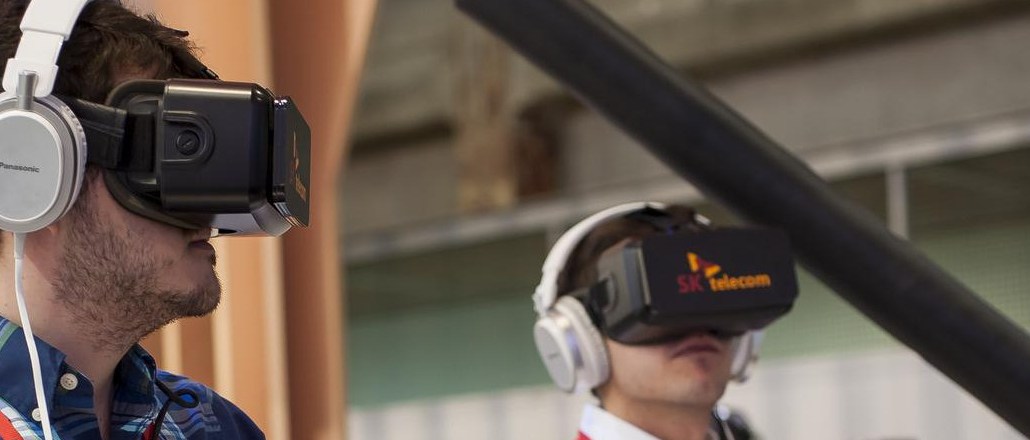Save 50% on a 3-month Digiday+ membership. Ends Dec 5.

Virtual reality is undoubtedly hot. The Oculus Rift went on pre-sale yesterday just as the who’s who of brand nerds converge at the Consumer Electronics Show in Las Vegas this week. Strapping on a pair of goggles is the “swipe right” of 2016. Agencies, never known for sitting out the next cool thing, are scrambling to get staffers up to date, holding workshops, breaking out headsets at happy hour and even reorganizing departments.
Framestore, the production and creative studio that has long been one of the frontrunners in VR production, has begun holding workshops for its agency partners, for example. Classes cover everything from the basics of a VR production and the hardware required to how to tell a compelling story in the medium and how to measure the KPI or ROI of a VR project. One helpful module: how to say no to clients that want a VR project just for the sake of it.
“We were getting agencies coming to us so late in the process,” said Resh Sidhu, creative director at Framestore. “They didn’t know the realities of what they were producing both from creative and a financial point of view. So we need to do this.”
The shop is also sending agencies that they work with minute-long introductory films on virtual reality in order to get them acquainted with other basics, including the kind of talent the agency should look at for its VR-oriented creatives.
At BBDO, VR has meant a reorganization and a rebranding of the agency’s digital lab. The lab, which was opened as a way for staffers to get down and dirty with the newest gadgets, is now being rebranded as the “X Lab,” with X standing for “experience.” That’s mostly because of virtual reality, which the lab’s director, Dan Charness, says needs to be experienced. Unlike, say Snapchat, which simply requires people to download an account, getting people up to speed with VR means offering a safe space for them to play with it.
The agency is getting creatives and non-creatives alike to strap on a pair of goggles and get some basic training in designing for VR. Training non-creatives is especially important, said Charness. “As soon as people experience it, they understand the process of what goes into actually making it too,” he said. That helps people understand not just deadlines for work but also the production process in VR and how different it is.

Ad position: web_incontent_pos1
At Huge, the thinking is the same: A Snapchat challenge isn’t enough. The agency has built a virtual “hangar” that houses all of its past and current projects (client or just IP) that use virtual reality. New staffers go through a seminar in the space, and Derek Fridman, creative director at Huge Atlanta, and designers all take trips there to familiarize themselves with the latest projects.
Firstborn’s training is a little more formalized. The development team will play with any new VR headsets for a while, said Dan LaCivita, CEO. “They look at how it works and tinker with features,” he said. Then, the developers hold sessions with the studio and creative teams to teach them how it works and brainstorm ideas for what they could do with it. Each team also hosts weekly show-and-tells that feature VR. A similar thing happens at Jam3 — just with libations. Adrian Belina, partner and executive creative director, said the agency will have “beer o’clocks” on Fridays where any new technology, including VR, is presented to the rest of the agency by developers or reps from tech manufacturers.
And there is a certain sense of responsibility to the medium. “We can’t fuck it up this time,” said Sidhu of Framestore. “The first time a consumer experiences VR will determine how they think of it. So our role has to be to filter out the noise. That’s why the training is important.”
Image via Shutterstock
More in Marketing

Ulta, Best Buy and Adidas dominate AI holiday shopping mentions
The brands that are seeing the biggest boost from this shift in consumer behavior are some of the biggest retailers.

U.K. retailer Boots leads brand efforts to invest in ad creative’s data layer
For media dollars to make an impact, brands need ad creative that actually hits. More CMOs are investing in pre- and post-flight measurement.
Ad position: web_bfu
